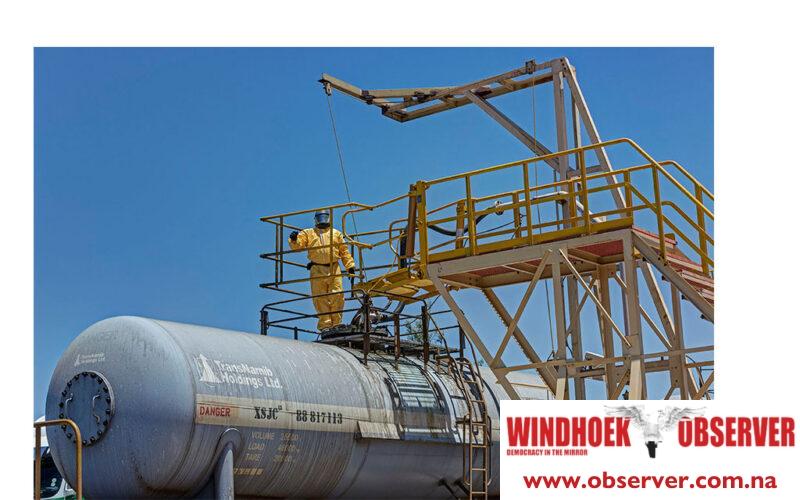CHAMWE KAIRA
Rössing Uranium Limited Managing Director, Johan Coetzee has said Rössing received a new lease on its operational life with the ‘life of mine’ expansion that was approved in February 2023.
He added that this strategic milestone grants the mine another 10 years in operation, moving mine closure from 2026 to 2036.
“Key expansion projects have been identified and approved by the board of directors to unlock the extended operating life. These projects include the construction of a 18MW solar plant and some fundamental changes in the operating plant to cope with the changing composition of the ore under the extended life of mine.”
Coetzee also spoke about the relationship that the company has with Namport and TransNamib. He disclosed that Rössing leases dedicated sulphuric acid facilities in the Walvis Bay port from Namport. Many major consumables are imported through Namport, which include sulphuric acid, manganese dioxide, heavy earthmoving tyres, he added.
Further importance of Namport’s operations to Rössing is that all exports of uranium oxide to international markets go through the port of Walvis Bay.
“Accordingly, the Walvis Bay port is extremely important to our logistical network and continued operational strategy,” he said.
Another important stakeholder to Rössing is TransNamib. Rössing Uranium on average transport between 170 000 and 190 000 tons per annum of sulphuric acid are transported by TransNamib Holdings, in addition, diesel of approximately 1.2 million litres per month is railed to site by Total, also using Transnamib.
Rössing uses TransNamib primarily for the transportation of sulphuric acid and uranium oxide, as well as the delivery of diesel.
Talking about the number of tonnes of cargo that Rössing transported through the railway in 2023 compared to 2022, Coetzee said in 2023, the company transported 185 000 tons of sulphuric acid and 3 015 tonnes of uranium oxide in containers via railway.
By comparison, in 2022, 183 000 tons of sulphuric acid and 2 864 tonnes of uranium oxide in containers were transported via railway.
TransNamib, however has aging fleet of rolling stock, which causes delays in the delivery of critical commodities.
“To address these challenges, regular stakeholder meetings are held with the Trans Namib team, and at operational level, Rössing is assisting Trans Namib with the turnaround time on availability of locomotives by off-loading during weekends where possible,” said Coetzee.
He also commented on the recent loan awarded by the Development Bank of Southern Africa (DBSA) and the Development Bank of Namibia (DBN) worth N$2.6 billion that will be utilized by TransNamib Holdings to acquire new rolling stock.
“This loan is expected to significantly alleviate the current challenges Rössing Uranium Limited faces regarding the reliability and availability of locomotives and rolling stock,” said Coetzee said.




